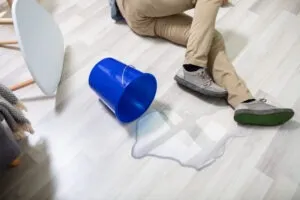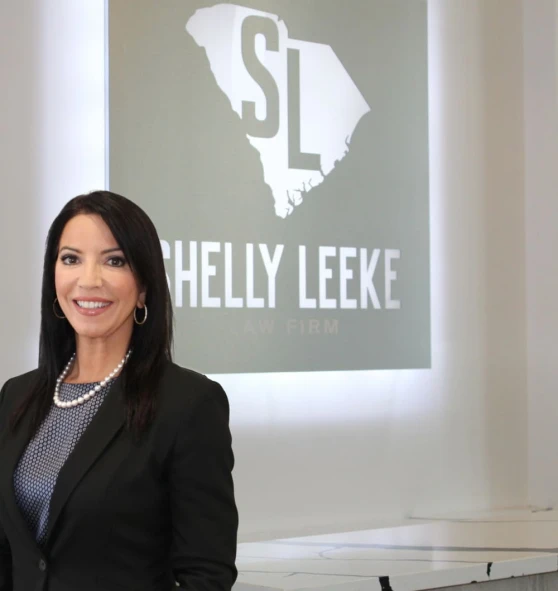
A condition is dangerous if it can lead to an accident, injury, or fatality. You may get hurt due to a property owner’s decision to ignore a dangerous condition. In this situation, a North Charleston premises liability lawyer may be able to help you seek damages from this negligent party.
At the Shelly Leeke Law Firm, we have a proven track record and over 10 years of experience with personal injury cases. We also offer a no-win, no-fee guarantee — if we do not get you compensation, you do not have to pay us anything. To learn more, reach out to us.
What a Dangerous Condition Looks Like
A dangerous condition may appear at a home or business. It is the property owner’s responsibility to address this condition right away. There are many conditions that may be considered dangerous, such as:
- Broken lights
- Damaged floors or stairs
- Defective escalators or elevators
- Faulty wiring
- Inadequate security
If you got hurt due to these or any other harmful conditions, you may have grounds for a premises liability claim. The Shelly Leeke Law Firm provides legal support and resources to injury victims. For more information, get in touch with us.

How to Show a Dangerous Condition Caused You to Get Hurt
You are responsible for showing that an at-fault party did not take care of a dangerous condition, which led to your injury. To prove negligence, you may need accident scene photos, videos, and other proof. Also, you must be able to show that the following elements of negligence were present when you got hurt:
- Duty of Care: An at-fault party had a legal obligation to provide you with a safe environment.
- Breach of Duty of Care: The party ignored a dangerous condition or chose not to tell you about it, which put you in danger.
- Causation: The party’s actions contributed to your injury.
- Damages: You are dealing with quantifiable or subjective injury-related losses.
Your attorney can help you gather evidence that shows a party was negligent. In addition, they can explain how South Carolina’s negligence laws impact claim value. Because, if the defendant in your case shows you are in some way liable for your injury, you may not be able to recover damages.
How Comparative Negligence Applies to a Premises Liability Case
According to the South Carolina Contribution Among Tortfeasors Act, you may share responsibility for your injury, even if it occurs due to a dangerous property condition. For instance, the defendant in your premises liability claim may claim it was reasonable to expect you to avoid a property hazard. If the defendant is successful, a judge or jury may award you partial damages or no compensation at all.
In South Carolina, there is a 50% rule relating to fault-injury cases. If you are less than 1-50% liable for your injury, you may recover a portion of the damages you originally requested. Alternatively, if you are more than 50% at fault, you may be ineligible to receive compensation.
As an example, a judge or jury may say you are 10% liable for your injury. In this scenario, you may be awarded 90% of the damages you initially sought. Comparatively, if you are found to be 51% liable, you may not receive compensation.

Damages You May Recover Due to a Dangerous Condition
Your lawyer can discuss what are compensatory damages and how they relate to your case. You may recover damages if you suffer an injury due to a dangerous property condition. Reasons why a judge or jury may award damages include:
- Emotional trauma
- Lost wages
- Medical bills
- Pain and suffering
You are responsible for showing a judge or jury that you deserve damages. With help from your attorney, you can gather a wealth of evidence to support your argument. This may lead the defendant to propose a settlement, allowing you to resolve your claim outside the courtroom.

Getting a Settlement in a Premises Liability Case
In terms of case results, the legal system offers no guarantees. You may believe it will be clear to a judge or jury that you were subject to a dangerous condition, got hurt, and deserve to be compensated. Regardless, a judge or jury considers each party’s argument, and they may choose not to award you damages.
If you want to secure compensation without a trial, you may want to consider a settlement. The defendant in your case may propose a settlement at any time before your trial. If you approve a proposal, you will get compensation that you can start using right away.
You are not legally obligated to review a settlement offer, but it may be beneficial to do so. If you discuss a settlement proposal with your attorney, you can weigh its pros and cons. You have the final say on what to do with an offer.
How to Get Damages in a Premises Liability Case
Hiring a lawyer is a great starting point. Your attorney can explain what is a personal injury or accident case. They will learn about you and your case, consider how you will present your argument, and help you build a body of evidence.
An at-fault party or their insurance company may reach out to you in the hopes of getting you to accept a lowball settlement offer. If this happens, notify your lawyer. You can let your attorney communicate with the liable party or their insurer on your behalf.
You may want to avoid posting photos or videos on social media relating to your injury. Anyone may access these photos and videos, including a liable party and their insurance company. If you publish social media content that raises doubts about the severity of your injury, this may be used against you.
Request Legal Help
The team at the Shelly Leeke Law Firm understands the challenges that can come up in a premises liability lawsuit. We may be able to help you get compensation from the responsible party for the dangerous condition that led to your injury. To schedule a free consultation, contact us today.







